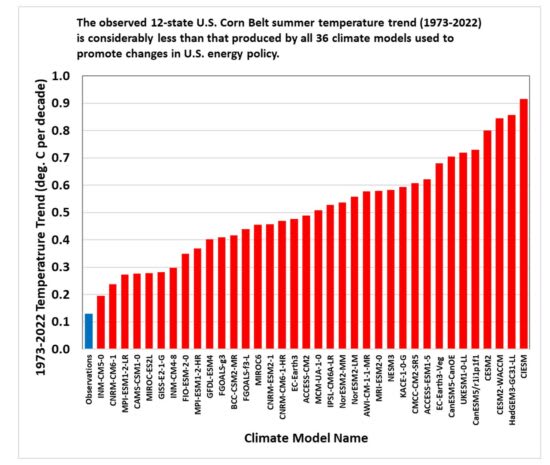"As I mentioned, it's happening." ... something's happening.
"It's an effect of CO2. It's not a myth and is not nonsense. There's a direct correlation between CO2 and the earth's temperature." ... this statement is why so much ink has been spilt. We KNOW so very little about the earth's climate that to say A is causing B is IMHO the height of hubris. Every time we learn something, we find a dozen other questions we don't know. But to say we do nothing until we KNOW is equally foolish.
The problem is that to "correct" CO2 is going to take such a massive cultural change and financial cost that people have had to say A is causing B, there's no doubt, and we're utterly domed if we don't do C. There's no "may" (in that A may be causing B), 'cause that opens the door to the how "how much ?" question. And the argument has ratchetted up so much that dire threats are posited (like "the globe will be uninhabitable by 2050 if we carry on"). The rhetoric is (IMHO) so absorb as people are saying things like "the tipping point is only 2030, after that we're doomed to an imminent and irreversible change".
And now we have a neat, catchy, slogan "net zero by 2050".
In my mind it is more like "A may be causing B" so lets look into A. Let's look into the climate mechanisms. Maybe we should stop burning coal (ok, well, reduce coal consumption), maybe there are some industries that liberate a lot of CO2, and maybe these can be modified at some acceptable cost ? Maybe there are things we can do that reduce CO2 without causing the destruction of our economies. Maybe build some more nukes ?
We should of course be aware of our impact on the environment. I contend that there are may more impacts than CO2, and by focusing in on one issue we're forgetting the others that could have a similar extinctual consequence.
"Hoffen wir mal, dass alles gut geht !"
General Paulus, Nov 1942, outside Stalingrad after the launch of Operation Uranus.


![[pipe] [pipe] [pipe]](/data/assets/smilies/pipe.gif)
![[ponder] [ponder] [ponder]](/data/assets/smilies/ponder.gif)